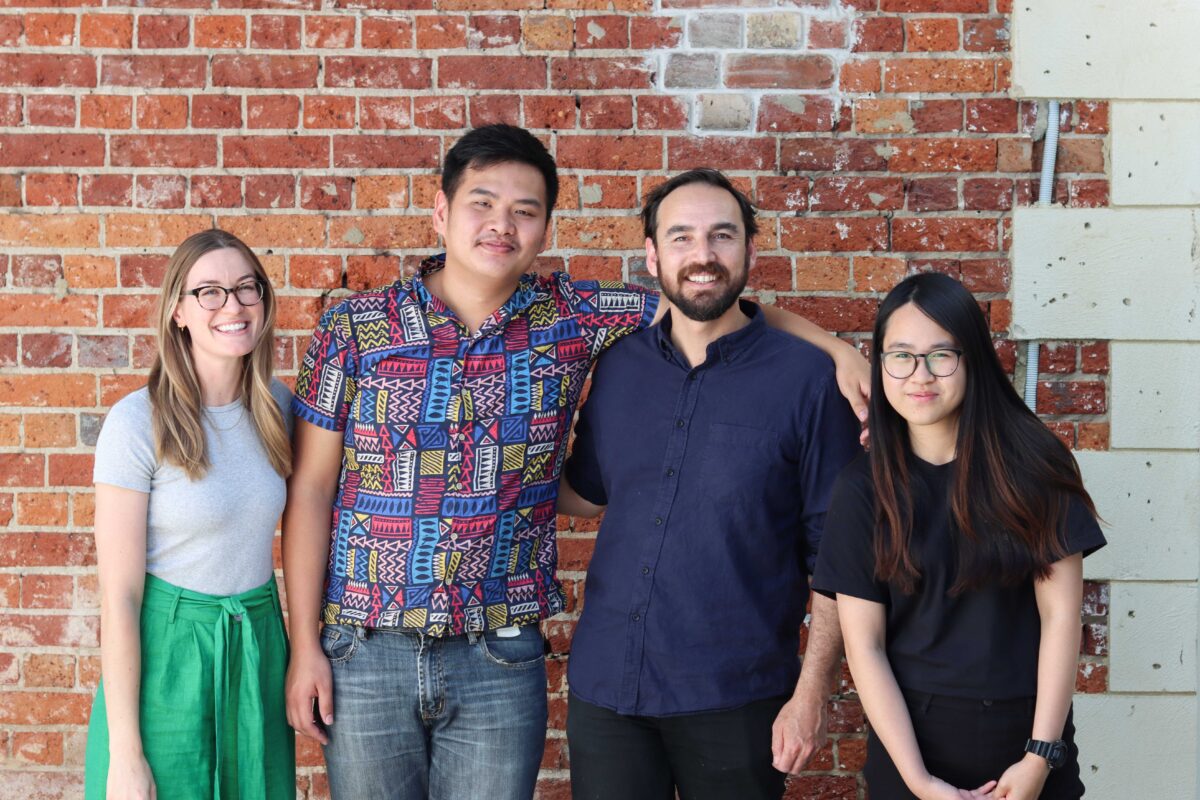
On the margins and beyond borders: showcasing voices from the Indian Ocean
Portside Review
Mounira Almenoar
“The local industry completely shut down; no books were being published at all, and there was little support from publishers. Portside Review gave us a new space to work and kept us afloat.”
Portside Review is an international literary journal publishing essays, short stories, and poetry for and from the regions bordering the Indian Ocean. Portside Review transcends nation-based borders in favour of a concept of cultural home that is unmoored to any one nation or culture, linked instead by migratory routes and diasporic memory. What underpins the organisation is a “genuine love for the written word and for the region” says Creative Director Robert Wood.
Key takeaways
The advancement of cultural, ethnic and linguistic equity is embedded into Portside Review’s approach via these principles:
- Locating your own centre Liberating the organisation from the prize culture and the market culture and a community choosing what constitutes good writing and good art.
- Foregrounding cultural and ethnic identity A focus on lived experience, cultural identity and the ties of migration and diaspora – beyond the national identity and preoccupation with national borders.
- Artist support and pay parity Paying overseas authors to a level commensurate with standard pay in Australia, ensuring a liveable wage. Providing a space to publish even in difficult times, such as the peak of the pandemic.
- Platforming seldom heard cultures and languages Translating works so they can reach an international audience in two, or sometimes, three languages. Bringing marginal ethnic community writing to an international audience.
According to Portside Review’s Creative Director Robert Wood, “the Indian Ocean is a region with its own type of consciousness”. His mother is a Malayali person whose family come from South India who emigrated to Australia in 1974 at the end of White Australia policy. (“The White Australia policy” is a phrase used to describe a set of historical policies starting in 1901 that aimed to forbid people of non-European ethnic origin from immigrating to Australia.) Seeking to add to the cultural offering and responding to lack of diversity in Boorloo (Perth), she and her husband set up The Centre for Stories, of which Portside Review is the publishing arm.
Locating your own centre
As Portside Review’s editors, translators and audience are based in Western Australia, India, Singapore, Pakistan, Indonesia and South Africa, the quarterly journal also operates as a literary network of geographically and culturally diverse voices and experiences, linking ports and countries and creating a space for conversation and connection.

In Wood’s view, the organisation comes out of a “peripheral place” (Western Australia), and its focal point is shifted decisively away from national matters; “it’s very liberating to not have to worry about a national conversation at all,” he says. That liberation allows the journal to stake out its territory in being part of a “positive articulation” of multiple cultures. It challenges writers in Australia to “see themselves as connected to something more than the nation, which is a liberating thing for culturally and linguistically diverse people”. Wood asserts that the centres of excellence aren’t necessarily in London or New York and explains that not seeking to be published in Sydney or Melbourne gives their output a different character and enables a turn away from colonial power structures.
Portside Review’s team live in different locations, and guest editors from around the region ensure the journal has not only varied content but is also positive for the governance of the journal.
Foregrounding cultural and ethnic identity
“Being attentive to the personal relationship people have to their identity as well as to their craft” makes Portside Review different: it was “built from the lived experience up”, says Robert Wood. To do this it’s crucial to stay in touch with the writers; the approach is to rely on people-to-people contact and good social relations between editors, translators and writers across the multiple locations.
Wood also talks of a responsibility to diaspora communities, to create a space where they can connect back to their ancestral homeland.

Portside Review author Rain Chudori explains that ethnic identity is more important to her than her Indonesian identity. Born in Jakarta, Chudori’s ethnic background is Minang (Minangkabau), a community that she describes as matriarchal, and one of the few nomadic communities in Indonesia.
Portside Review’s ethos suits Chudori, who wants to “write in a way that is authentic and faithful to the way our people of our culture live” and to address what can often be a “chasm” between ethnic, spiritual and national identities.
Artist support and pay parity
Chudori described how organisations such as Portside Review can “open doors” for writers on the margins of the publishing world. Authors in Indonesia experienced very difficult times during the pandemic – she says, “the local industry completely shut down; no books were being published at all, and there was little support from publishers. Portside Review gave us a new space to work and kept us afloat.” Livelihoods were and are still precarious for writers, and support from abroad is a big help. “The lifeline of fellowships and residencies enable us to survive.”
Robert Wood explained that Portside Review does not take advantage of the economic differences between Australia and countries such as Indonesia when it comes to pay. Instead, authors abroad can expect to be paid as much as the established white journals offer to authors in Europe, Sydney or the US. He believes in the importance of exercising “purchasing power parity” allowing authors “recognition, plus a liveable wage.” “Their work is valued,” he continues; “we don’t operate like a fast fashion model.”

Platforming seldom heard cultures and languages
Portside Review actively challenges the dominance of English in literary publishing circles. It published an Indonesian volume in Bahasa Indonesia, as well as taking the ground-breaking step of translating and publishing works in Adivasi languages; First Nations voices being translated into English was a significant moment for the literary scene in India.
Because it is important to the organisation to operate beyond linguistic siloes, it is not unusual for works to be published in two or even three languages.
As a result of Portside Review’s efforts, voices that are culturally marginalised within their home nation have been published for the first time. It has also provided authors whose works are already in print their first chance to be published internationally.
Funding
Portside Review is funded by a subscription model, and is also supported by the Department of Foreign Affairs and Trade, the Department of Local Government, Sport and Cultural Industries (Western Australia) and the Centre for Stories.
What is the Imagine Project?
We’re publishing case studies and documenting Australia’s best work in advancing cultural diversity and racial equity and inclusion in the arts through the Imagine Australia Project, managed by Diversity Arts Australia (DARTS) and funded via the Australia Council’s Re-Imagine project and supported by Creative Equity Toolkit partner, British Council Australia. To find out more click below – or read the other case studies as they go live here.
